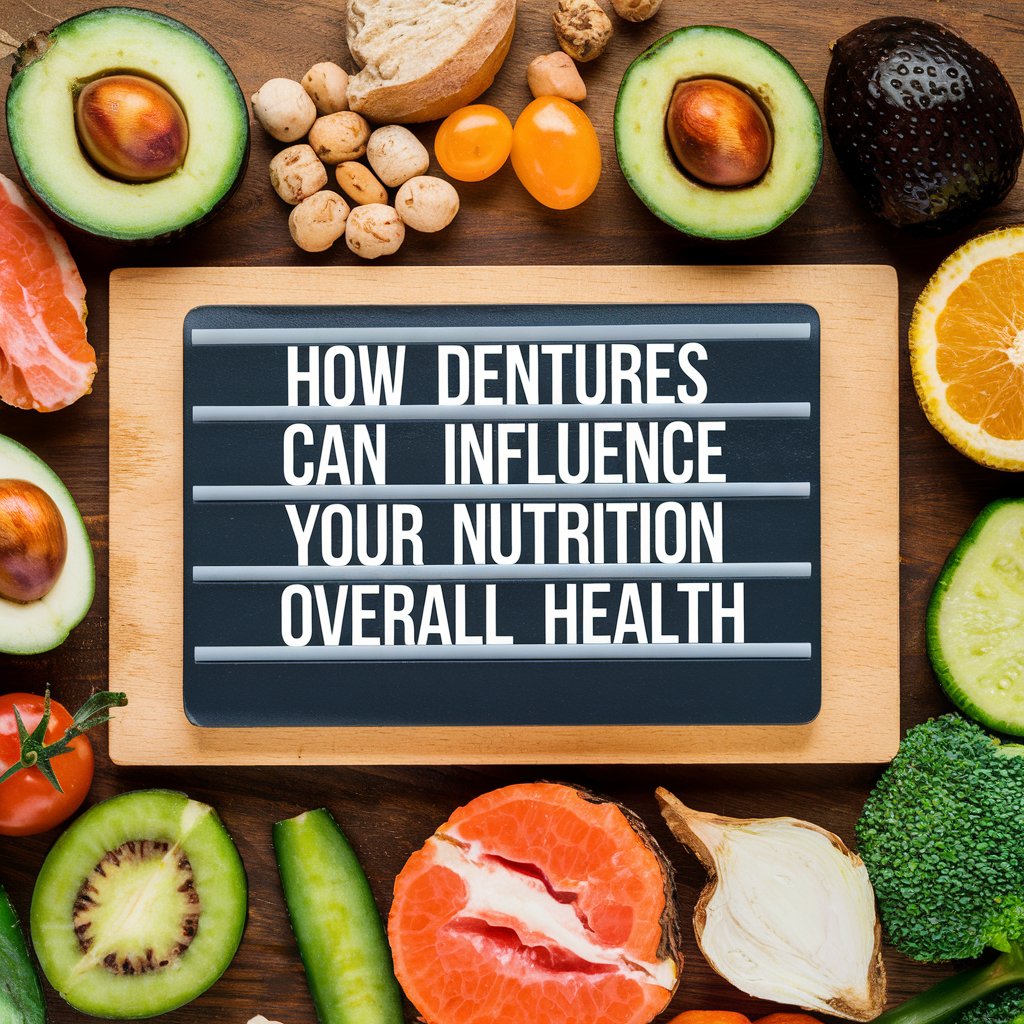The loss of natural teeth often leads to the need for dentures, which can restore the ability to eat, speak, and smile with confidence. However, while dentures provide a crucial solution for those who have lost their teeth, they can also have an impact on nutrition and overall health. Understanding how dentures affect eating habits and nutrient intake is essential for ensuring that they do not compromise your well-being.
The Connection Between Dentures and Nutrition
When natural teeth are replaced with dentures, the way you chew and process food changes significantly. Dentures, especially when first fitted, can alter the efficiency of chewing, making it more difficult to break down food into smaller, digestible pieces. This can be particularly challenging for harder or more fibrous foods like raw vegetables, fruits, and certain types of meat, which require a strong bite and thorough chewing.
As a result, some denture wearers may find themselves avoiding these nutrient-rich foods in favor of softer, easier-to-chew options. While this can make eating more comfortable, it may lead to a diet that is lower in essential vitamins, minerals, and fiber. Over time, this change in diet can have a negative impact on overall nutrition, potentially leading to deficiencies that affect energy levels, immune function, and long-term health.
Adjusting to Dentures: The Importance of Patience and Practice
For those new to dentures, the adjustment period can be a time of trial and error when it comes to eating. It’s not uncommon to experience difficulties with certain foods, and this can lead to frustration and a desire to stick to a limited range of meals. However, it’s important to be patient and allow time to adapt to the new way of chewing.
With practice, many denture wearers find that they can gradually reintroduce a wider variety of foods into their diet. Cutting food into smaller pieces, chewing slowly, and taking the time to get used to the sensation of dentures can help make the process easier. Additionally, using both sides of the mouth to chew can help balance the dentures and reduce the likelihood of them slipping out of place.
Soft Foods and Nutrition: Striking a Balance
While soft foods can be easier to manage with dentures, relying too heavily on them can lead to a diet that lacks the diversity needed for optimal health. Many soft foods, such as mashed potatoes, bread, and pasta, are high in carbohydrates but low in essential nutrients like protein, vitamins, and fiber. To maintain a balanced diet, it’s important to include a variety of nutrient-dense options, even if they require a bit more effort to eat.
For instance, cooked vegetables, which are softer than raw ones but still rich in vitamins, can be a good compromise. Similarly, fish and poultry are generally easier to chew than tougher cuts of meat, while still providing high-quality protein. Incorporating these types of foods into your meals can help ensure that you’re getting the nutrients your body needs to stay healthy.
The Role of Denture Fit and Maintenance
The fit of your dentures plays a crucial role in how well you can chew and maintain a healthy diet. Regular visits to a Gosford dentist can help ensure that your dentures fit properly and function effectively. Bad dentures might cause pain, sore areas, and discomfort, discouraging you from eating diversity. As your gums and jaw alter, your dentures may loosen or become unstable.
Dentures must be checked by a dentist regularly to fit and work properly. Adjustments or relining may enhance denture fit and comfort. Denture adhesives help stabilize teeth and make chewing more foods easier.
Proper denture care is crucial for dental and general health. Cleaning your dentures prevents irritation and infections, which can make eating uncomfortable. Denture cleaning and storage should be done according to instructions.
Nutritional Considerations for Denture Wearers
Diet is crucial for denture users’ health. You need a balanced diet with meals from all the major food categories. Consider easier-to-eat foods with equivalent nutritional benefits if some items need to be made easier.
Choose nutrient-dense veggies like sweet potatoes or squash if raw carrots are hard to chew, or simmer them until cooked. If rough meats bother you, try eggs, yogurt, or tofu. Smoothies are an easy way to consume fruits, vegetables, and proteins with dentures.
To ensure you obtain enough vitamins and minerals, dietary supplements may be advised. However, entire foods provide the fullest nutritional benefits, therefore a balanced diet is preferable.
Conclusion: Maintaining Health and Enjoyment of Food
Dentures can have a significant impact on your nutrition, but with the right approach, they don’t have to limit your diet or compromise your health. By being mindful of the types of foods you eat, ensuring that your dentures fit well, and practicing patience as you adjust, you can continue to enjoy a varied and nutritious diet.
Regular dental check-ups, along with a commitment to maintaining good oral hygiene and proper denture care, will help you keep your dentures in optimal condition, making it easier to eat well and stay healthy. Remember, your overall well-being is closely linked to your nutrition, so taking steps to ensure that your diet remains balanced and nutrient-rich is crucial, even when wearing dentures.




